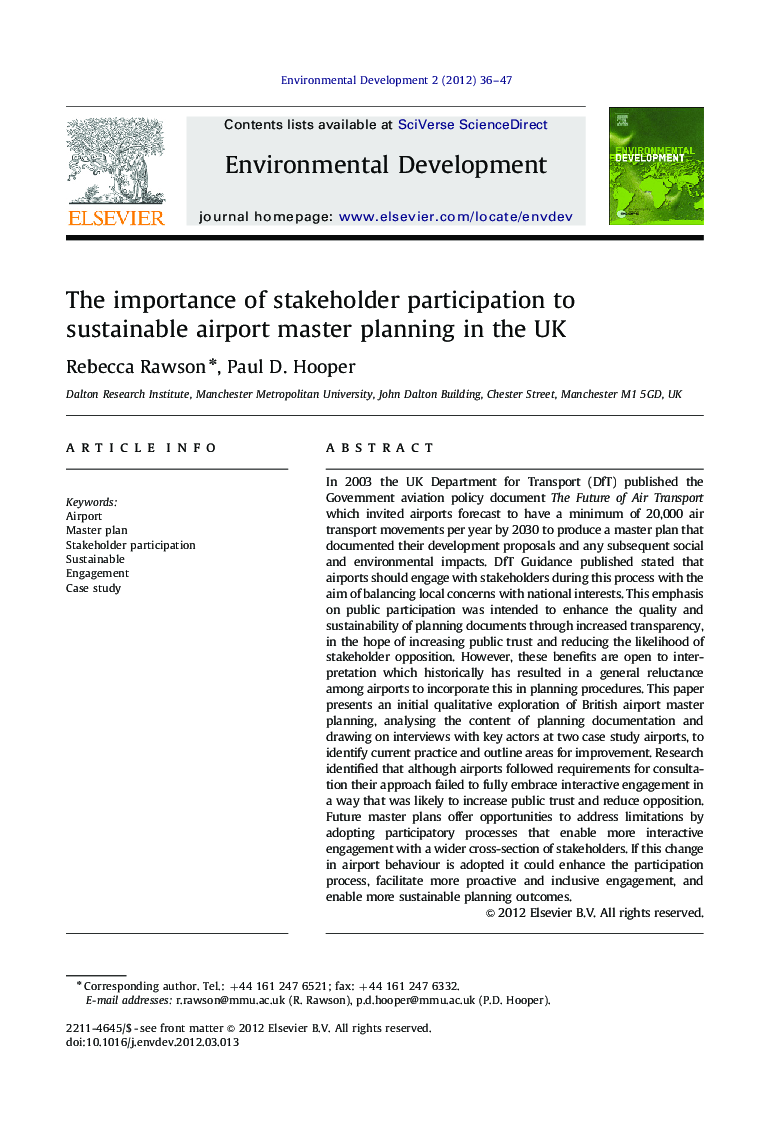| Article ID | Journal | Published Year | Pages | File Type |
|---|---|---|---|---|
| 6302988 | Environmental Development | 2012 | 12 Pages |
In 2003 the UK Department for Transport (DfT) published the Government aviation policy document The Future of Air Transport which invited airports forecast to have a minimum of 20,000 air transport movements per year by 2030 to produce a master plan that documented their development proposals and any subsequent social and environmental impacts. DfT Guidance published stated that airports should engage with stakeholders during this process with the aim of balancing local concerns with national interests. This emphasis on public participation was intended to enhance the quality and sustainability of planning documents through increased transparency, in the hope of increasing public trust and reducing the likelihood of stakeholder opposition. However, these benefits are open to interpretation which historically has resulted in a general reluctance among airports to incorporate this in planning procedures. This paper presents an initial qualitative exploration of British airport master planning, analysing the content of planning documentation and drawing on interviews with key actors at two case study airports, to identify current practice and outline areas for improvement. Research identified that although airports followed requirements for consultation their approach failed to fully embrace interactive engagement in a way that was likely to increase public trust and reduce opposition. Future master plans offer opportunities to address limitations by adopting participatory processes that enable more interactive engagement with a wider cross-section of stakeholders. If this change in airport behaviour is adopted it could enhance the participation process, facilitate more proactive and inclusive engagement, and enable more sustainable planning outcomes.
⺠Airport master plans as strategic planning tools and tools for communication. ⺠In depth interviews with key actors involved with the master plans at two airports. ⺠Master plan participation processes largely tokenistic and only partially complete. ⺠Stakeholder engagement currently insufficient to inform impact trade-offs. ⺠Enhanced opportunities needed for the input of stakeholders and organisations.
